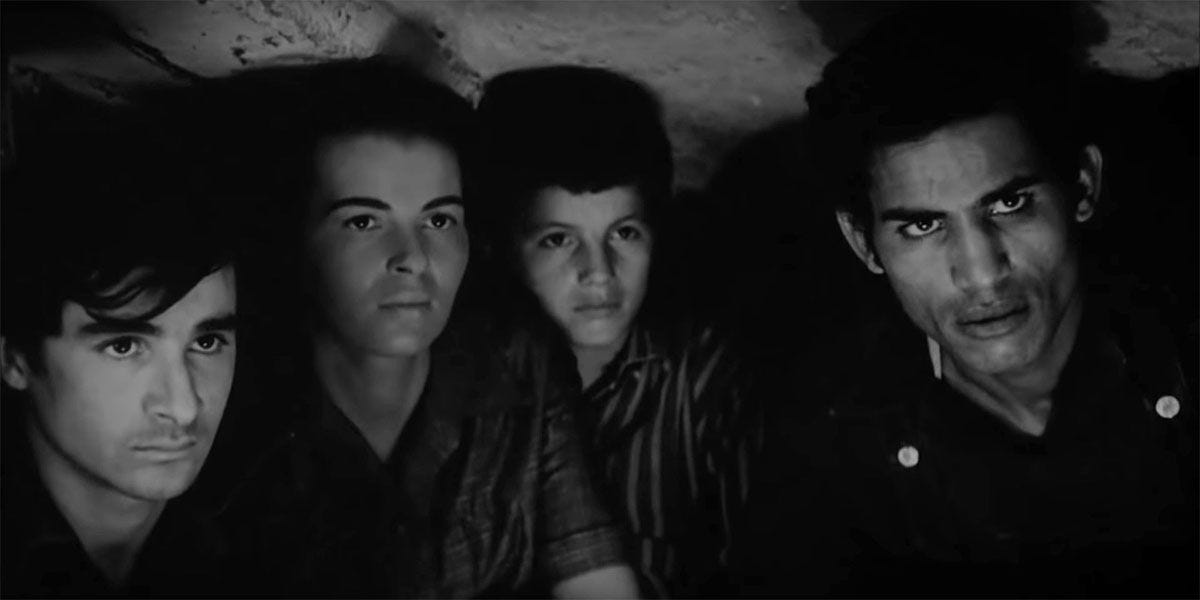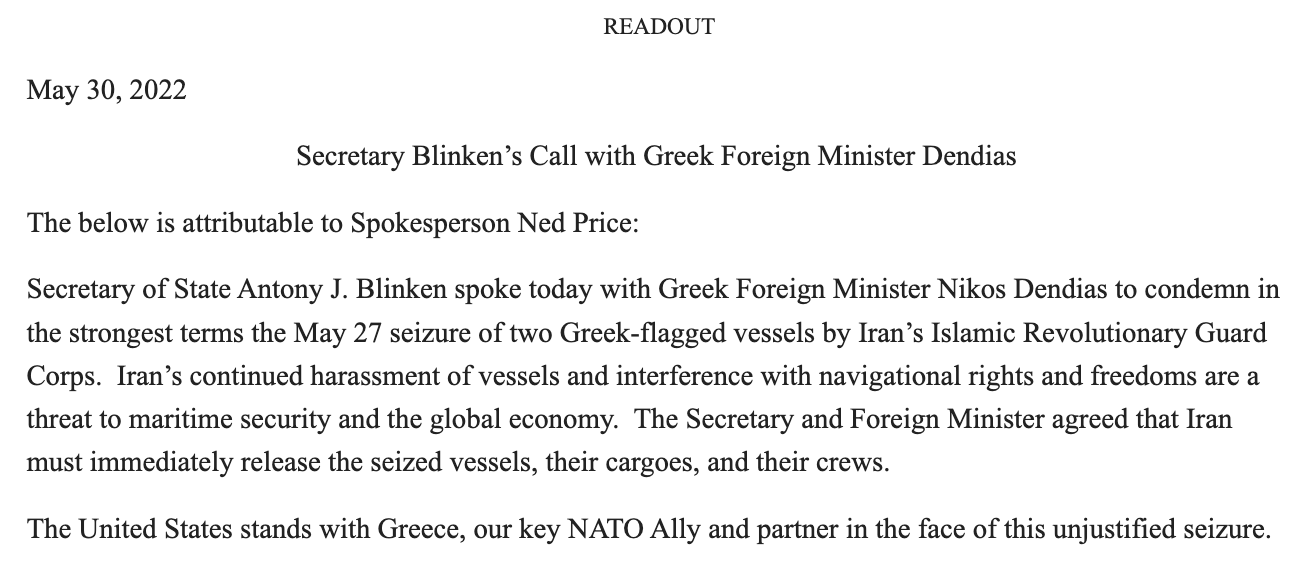#3 Algeria
Welcome to the 195 series, where I take you on a mini-tour of every country (and maybe some places that want to be countries). Each week I'll feature a new location. Some you may have heard of, while others may be new to you. The point is to learn and nurture our curiosity about the wider world. Maybe you'll find a new artist or musician you like, too.
Here's the link to copy and paste in your browser if you're interested in supporting this project: https://lazo-letters.ghost.io/#/portal/signup. You can sign up for $2 a month or $22 a year.
Country Info:
Population: Roughly 43.85 million.
Current government: Algeria is a republic where the president is the head of state, and the Prime Minister heads the government.
Languages spoken: The official languages of Algeria are Arabic and Tamazight, which is a Berber language spoken in Northern Africa. The country didn't recognize Tamazight as an official language until 2016. Here's a lovely 50-minute YouTube video explaining whether Berber speakers from Morocco and Algeria can understand each other.
Religion: Islam is the official religion of Algeria. The constitution prohibits state institutions from behaving in a manner incompatible with Islam. Over 99% of Algerians are Sunni Muslims following the Maliki school, one of the four Sunni schools of Islamic law.
Standout artist: Baya Mahieddine, 1931 -1998. This legendary artist influenced Picasso and inspired him to paint a collection called Women of Algeria. She was entirely self-taught.

Standout musician: Gnawa Diffusion, an Algerian Gnawa band based in Grenoble, France. Traditional Gnawa music blends Islamic Sufism with pre-Islamic African animistic traditions. Their music often refers to ritual practices to drive out evil.
Standout film: The Battle of Algiers, 1966. This might be the most obvious choice of film, but it is so iconic that I have to recommend it. It's a perfect movie that portrays Algeria's fight for independence from the French.

A surprising thing: Algeria is the largest country on the African continent.
Story of the week: In early 2019, millions of Algerians headed to the streets to demonstrate against then-President Abdelaziz Bouteflika’s bid for a fifth term in office.
The president was 81 years old and severely ill at the time, and the people were ready for someone new. (Bouteflika, the country's longest-serving president, was in office from 1999 until 2019. He died in 2021. The BBC wrote his obituary, and it is fascinating).
The uprising in 2019 was widely considered the most important political event in Algeria since the country's independence from France in 1962.
Recent efforts to crush the protest movement, which is known as Hirak, is now affecting government critics abroad, according to Human Rights Watch. Hundreds of Hirak protesters are already in jail in the country. Now they're being deported from third countries, too.
A former Algerian serviceman called Mohamed Benhalima was handed over by the Spanish government to the Algerian authorities on March 24, El Pais reported this week. Spain decided to deport Benhalima five days after Algeria withdrew its ambassador in Madrid to protest Spain’s decision to support Morocco’s autonomy plan for Western Sahara.
Benhalima could now face the death penalty.
What I'm writing:
• Calls for more heavy weaponry have grown urgent as Ukrainian forces risk being encircled by heavily armed Russian troops in Ukraine’s East. Ukrainians are circulating a wish list of weaponry around Washington. I wrote about what's on the list and the debate over whether to send Ukraine long-range munitions [This article is unlocked].
What I'm reading:
• Russia seized control of the Ukrainian city of Lyman in the Donetsk region, Ukrainian officials confirmed.
• As the war in Ukraine approached its 100th day, the fighting began to tip in Russia’s favor. Russian troops entered Sieverodonetsk, one of the last strategically significant cities in the Luhansk region still under Ukrainian control, Ishaan Tharoor reports for the Washington Post.
• Official documents and military decrees reveal that hundreds of Russian troops defied orders in the invasion of Ukraine. The documents, obtained by the Wall Street Journal, show that troops escaped fighting in Ukraine or refused to take part in the war after Russia’s army suffered severe losses early in its invasion.
• The Guardian has a horrific report about how people in Mariupol are trying to locate the bodies of their dead relatives. "The number of bodies in Mariupol is overwhelming. Petro Andryushchenko, an adviser to the Ukrainian mayor, estimated that 22,000 died in the two months of fighting. However, a person coordinating burials in the city who spoke on condition of anonymity said they believed the total was closer to 50,000," Isobel Koshiw reports.
• Russia said it would protect the safety of ships carrying grain from Ukraine. The Russian Defense Ministry said that grain could be exported from Ukraine’s ports in the Black Sea using humanitarian corridors, the Washington Post reports.
• The leader of Georgia's breakaway region of South Ossetia scrapped plans to hold a referendum on joining Russia, which his predecessor had scheduled for July 17, France 24 reports.
• In an exclusive interview with Sky News, General Paul Nakasone confirmed that U.S. Cyber Command conducted offensive operations in support of Ukraine.
• Switzerland vetoed Denmark’s request to send armored vehicles to Ukraine, Reuters reports. Despite having parted with its long history of neutrality by adopting EU sanctions, the Swiss government cited its policy of not supplying arms to conflict zones.
• The United Kingdom approved a new gas field in the North Sea to shore up energy supplies. The move comes as the supply of gas from Russia becomes increasingly unstable, with Gazprom cutting off both Denmark and the Netherlands in the last few days.
• The European Union reached an agreement to ban almost all Russian oil imports by the end of the year. Hungary’s Prime Minister Victor Orban previously held up the deal, calling it an “atomic bomb” to the Hungarian economy. To win Hungary’s approval, European leaders endorsed an embargo on oil arriving by sea, which would cut 0ff two-thirds of the EU’s total oil imports without affecting landlocked Hungary, the New York Times reports.
• Hungary also asked to exempt the head of the Russian Orthodox Church, Patriarch Kirill, from the latest round of sanctions against Russia, just two days after EU leaders approved the plans, Politico Europe reports.
• Estonia, Latvia, and Slovakia announced they would join Lithuania, Poland, and Ukraine in the Joint Investigation Team to help coordinate sharing evidence of atrocities through the European Union's judicial cooperation agency Eurojust, the Associated Press reports.
• The Dutch intelligence service AIVD uses the controversial Pegasus software purchased from the Israeli company NSO Group, four sources told NL Times.
• In a significant concession to the Polish government, the European Union opened the door for the disbursement of billions of dollars in aid to Poland that was blocked during a standoff over judicial independence, the New York Times reports. Politico Europe's Playbook said four EU commissioners— including First Vice President Frans Timmermans, Vice President for Values and Transparency Věra Jourová, and competition chief Margrethe Vestager — would raise objections to the plan because Poland still hasn’t reinstated the judges it illegally fired, despite a Court of Justice of the EU ruling.
• Serbian President Aleksandar Vučić announced a new three-year gas deal with Russia despite global sanctions. The deal is likely to be signed when Russian Foreign Minister Sergey Lavrov travels to Belgrade early this month, the Associated Press reports.
• The center-right European People's Party leader in the European Parliament, Manfred Weber, took over as EPP president from incumbent Donald Tusk, the popular former Polish leader and ex-head of the European Council, Politico Europe reports.
• Authoritarian governments are increasingly targeting dissidents on U.S. soil and worldwide, a new report by the think tank Freedom House found. Exiles and diasporas living in the U.S., Germany, South Africa, Sweden, Turkey, the United Kingdom, Thailand, Canada, and Ukraine face serious threats.
• Iran has enriched enough uranium to produce a nuclear weapon, according to a report by the United Nations' atomic agency. The Wall Street Journal has the report.
• U.S.-backed Syrian forces warned of the dangers of a potential new offensive from Turkey, Reuters reports.
• Tens of thousands of ultranationalist Israelis raided the Muslim quarter of Jerusalem's Old City for a “flag march," which Palestinian Prime Minister Mohammed Shtayyeh called "aggression which crossed all red lines," Al Jazeera reports.
• Rodolfo Hernandez - a businessman who is considered Colombia’s Trump - beat conservative establishment candidate Federico Gutierrez in Sunday’s election, dramatically shifting Colombia’s political landscape, the New York Times reports.
• Runoff elections in Colombia will take place on June 19th, pitting two populists, a businessman and a left-wing Senator and former guerilla, against one another, ABC News reports.
• Tens of thousands have been displaced in the Congo after a resurgence of fighting in the east. Tensions erupted after the M23 rebel group members attacked Congolese forces near Goma, the largest city in the country's mineral-rich east, the Washington Post reports.
What the State Department says:
You can also write to me for any reason: c.maza@protonmail.com. Upgrade to a premium subscription by Clicking Here.











